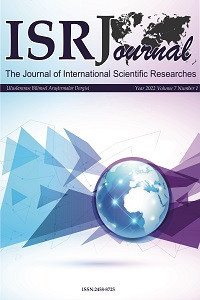Devlet Yardımlarının İhracat Performansına Etkileri: AB15 ve Türkiye
Özellikle gelişmekte olan ülkelerde sanayinin yeterince gelişememesi, yatırımların ve yatırım mallarının yetersizliği, dışa bağımlılığın fazla olması, teknolojik gerilik, dış ödemeler açığı ve tasarruf yetersizliği gibi temel sorunlar, ekonomik ve sosyal kalkınmanın gerçekleşmesini engellemektedir. Öte yandan küreselleşme ile birlikte teşvik politikaları, ülkelerin sosyo-ekonomik kalkınmalarının gerçekleştirmelerinde, rekabet güçlerini artırarak dünya pazarlarından daha fazla yararlanmalarında ve böylece refah düzeylerini artırabilmelerinde önemli araçlarından birisi konumuna gelmiştir. Bu amaç doğrultusunda çalışmada, ihracata yönelik devlet yardımlarının ihracat performansı üzerindeki etkisi Avrupa Birliği üyesi 15 ülke (AB 15) ve Türkiye için 1996-2013 dönemi itibariyle araştırılmıştır. Çalışmada değişken olarak, reel ihracat değerleri, ülkelerin yardım değerleri, ithal edilen makine ve teçhizat değerleri ile reel GSYH değerleri kullanılmıştır. Serilerin birim kök taşıyıp taşımadıklarının tespiti için yapılan birim kök testi sonuçları serilerin birinci farkında durağan olduklarını ortaya koymuştur. Pedroni ve Kao eşbütünleşme testi sonuçları ihracata yönelik devlet yardımları ve ihracat performansının eşbütünleşik olduğunu ortaya koymuştur. Tam Değiştirilmiş En Küçük Kareler (FMOLS) yönteminden elde edilen bulgulara göre ihracata yönelik devlet yardımlarının ihracat performansını istatistiksel olarak %1 anlamlılık seviyesinde anlamlı ve pozitif yönde etkilediği belirlenmiştir. Ayrıca hata düzeltme modeli sonuçlarına göre ihracata yönelik devlet yardımlarından ihracat performansına doğru tek yönlü bir nedensellik ilişkisi tespit edilmiştir. Bu ampirik bulgular, ihracata yönelik uygulanan devlet yardımlarındaki artışın ihracat performansını artırabileceği sonucunu ortaya koymuştur.
The Effects of State Aid on Export Performance: EU15 and Turkey
Especially in developing countries, fundamental problems such as inadequate development of investments, investment goods and manifactoring sector, excessive foreign dependency, technological backwardness, current account deficit and inadequate savings restrain economic and social development. On the other hand, with the globalization promotion policies have become one of the most important tools which increasing competitiveness and prosperity, having more market share of countries. In accordance with this purpose, the effect of state aid for export on export performance was investigated to EU-15 and Turkey in 1996-2013 period. In this study, state aid, import of machinery and equipment, real GDP and real Export values was used as a variable for estimating the empirical relationship between state aid for export and export performance in EU-15 and Turkey. The results of the unit root test conducted to detect whether the series involve unit root or not reveal that the series are stationary in their first difference. The results of Pedroni and Kao cointegration test show state aid and export performance are cointegrated. According to the findings obtained from the Fully Modified Ordinary Least Square (FMOLS) method, state aid affects export performance statistically 1% at the level in a significant and positive way. Moreover, a unidirectional causality relationship from state aid to export performance is detected according to the error correction model. Finally, this study states that any increase in the state aid, grow up the export performance.
___
- Al-Mulali, Usama and Ozturk, Ilhan (2015), “The effect of energy consumption, urbanization, trade openness, industrial output, and the political stability on the environmental degradation in the MENA (Middle East and North African) region”, Energy, 84, 382-389.
- Alvares, Roberto ve Crespi, Gustavo (2000), “Exporter Performance And Promotion Instruments: Chilean Empirical Evidence”, Estudios de Economia, 27(2), 225-241.
- Bai, Jushan and Kao, Chicwa (2005), “On the Estimation and Inference of a Panel Cointegration Model with Cross-Sectional Dependence”, Centre for Policy Research, 89, 1-26.
